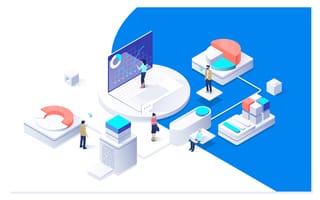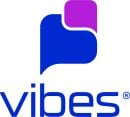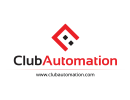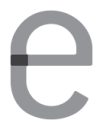In the West Loop neighborhood of Chicago, Au Cheval often attracts a line up to three hours long. Considered one of America’s premier burger destinations, the restaurant slings up to 500 patties per day on any given weekend. Facing the chaos of hungry diners and food media, one figure stands as the first line of defense for the revered establishment: the service manager.
Far from just a customer service figure, the service manager navigates the front of staff logistics — reservations, press management, guest communications, supplier connections, marketing pitches and more. With their technical prowess, they support the waitstaff and kitchen crew from before the first person is through the door to long after the last diner finishes the Windy City’s legendary burger.
It’s a crucial role for any consumer-facing organization. In the tech world, customer success managers wear similar hats. And increasingly, they’ve taken on more technical roles as companies incorporate advanced solutions.
When tech companies scale up, so do the responsibilities of CSMs. From upsell and customer insight to general support and client renewals, CSMs cast a wide support net that often requires technical knowledge of their companies’ products. Companies are now integrating their CS organization into a broader IT framework to streamline their operations, eliminating distractions for their back-end staff and ensuring that satisfied customers return.
For Elyse Cress, director of mobile engagement services at Vibes, her mentor took the initiative. “Brian, our chief technology officer, is always willing to find creative ways to achieve a customer’s objectives and challenges me to look at opportunities from different angles,” she said. Together, they launched a technical pilot program for a client using machine learning for responding to messages.
CSMs that blend versatile IT skills with a customer-centered approach can not only engage more efficiently with tech-oriented clientele, but also reduce their workload through programming and data management. For those wanting to open new doors, there are now a variety of options for traditional CSMs to gain a technical foothold, either on the job or through personal learning.
To highlight the career journeys of some of these accomplished front-of-house individuals, Built In Chicago sat down with four companies that have invested in a technical CS staff — and found great success as a result.
Vibes is a mobile-based marketing platform.
Briefly, tell us about your current role and the career path that brought you here.
I am currently a director of mobile engagement and launch services in our customer success organization, overseeing half of the mobile engagement team and running our customer onboarding via launch services. Our team enables customers to use the Vibes platform in the most effective way for them to meet their business goals. We are technical consultants for both in-platform campaigns and third-party integrations, including custom programs like interactive ready-to-reveal programs.
We work with our customer strategy team, the other practice in our CS org, to help make our customers’ mobile engagement programs successful. The customer strategy team drives the what and why with our customers, then the mobile engagement team shows the how.
I joined Vibes in 2015 as an account manager helping to guide brands like Redbox and Lane Bryant, who are still my customers today, on their mobile engagement programs. In 2018, Vibes made the strategic decision to split the customer success team into two distinct practices under the CS umbrella. Having developed a passion for building solutions with our platform and APIs, I moved into the technical track of the mobile engagement team.
It was a big growth moment for me.”
How did you develop the technical skills needed to step into this role?
All of my technical skills have been 100 percent learned on the job at Vibes. From early on, it was my goal to be able to lead technical-oriented meetings without needing to bring in a product manager or engineer. Being part of a mid-size growth organization like Vibes provided me the opportunity to immerse myself in technical conversations to help build my tech business acumen. I’d sit in on meetings with our most tenured technical teams and did my best to learn and absorb everything they said, looking up any acronyms or terms that I didn’t understand or wanted to learn more about on my own time. I asked a lot of questions and was fortunate to have a lot of people willing to help me learn and grow.
One example that I often reflect back on was a business trip to visit a customer in 2019. My manager at the time had just had surgery and wasn’t able to travel, the product manager got stranded during a layover and our VP’s flight got canceled, leaving me to run the in-person technical meetings by myself. Thanks to what I had learned at Vibes, I was able to answer all of the technical questions on my own and run a very successful meeting. It was a big growth moment for me.
How have you continued to develop your technical skills in your current position?
I collaborate with our product team through bi-weekly meetings, and also work to stay involved in customer projects. I serve as an escalation point for my teams and cover execution when members of my team are on vacation. It’s my goal to never lose touch with our platform capabilities, so I love any opportunity to test and troubleshoot.
I like to follow industry publications, listen to webinars, and stay in tune with both customer and non-customer mobile programs. Having a natural sense of curiosity enables me to constantly learn – it’s one of my personal core values and biggest motivator.
Through the mentoring program at Vibes, I got paired with our chief technology officer, Brian Garofola. He continues to be a great coach for me as a manager, as well as an inspiration in my quest to always be learning, which is a core value of Vibes. One of my favorite experiences with Brian was working together to launch a Smart Response Engine pilot for one of our customers using machine learning to respond to incoming messages on a short code.
Club Automation is a software management program for health and athletic clubs, as well as medical wellness centers. Its parent company, Daxko, offers operations and management solutions for health and wellness organizations.
Tell us about your current role and the career path that brought you here.
Currently, I am responsible for integrating new clients and partners on the many APIs that my company maintains. I also deal with testing each API when partners are having trouble with their integrations with our clients. I spend a great deal of time making test calls to both REST and SOAP APIs.
I was originally working on an English degree, but the prospects I was seeing for my career were not what I wanted. I worked several jobs before I actually found my way to the tech industry. While I was working on my degree I was an anesthesia tech, and I spent a short time managing a cafe. The real catalyst was my spouse showing me the website of a local coding boot camp. I spent some time learning from a couple of free full-stack resources online and eventually committed to starting the boot camp.
How did you develop the technical skills needed to step into this role?
The coding boot camp and online tutorials are what initially built the foundation of my current skill set. It was quite hard to break into the tech industry without a degree, but once I did, the experience proved to be the most valuable skill builder I’ve had to date. I’ve had more opportunities to learn in my past two roles than I ever learned at the boot camp.
One of the most important examples I can think of was dealing with a billing issue and a monthly batch of membership dues being improperly submitted. At that time I was a technical services engineer, so I had to build several complex SQL queries to find all of the missing data, convert it to a temporary table that could be inserted back into a production table, and put all of the manipulated data back without disturbing the live flow of new transactions into the database. I spent a week on that project, but I feel like I learned more about SQL in that week than I ever did learning full-stack development.
I find that situations like that tend to sharpen your skills and push what you may be capable of more than anything because of how demanding they can become.
I’ve had more opportunities to learn in my past two roles than I ever learned at the boot camp.”
How have you continued to develop your technical skills in your current position?
I’ve used LinkedIn Learning quite a lot to learn more of the less commonly used skills I need in my day-to-day job. Of course, I’ve also relied on any tech professional’s favorite tool, Google, to find new methods and tools to use in my work. Seeking out other projects outside of work has also helped me to keep growing my skills. Most recently, I have been learning a little about Unity for game development.
Professionally I have found that asking coworkers who may be above my position in skills and responsibility how they would do something also helps me strengthen my foundational knowledge and skills. Getting feedback from someone who has mastered more of your profession has proven to be quite invaluable.
Evive is a data analytics company focusing on healthcare and human resources.
Tell us about your current role and the career path that brought you here.
I am the lead data operations analyst here at Evive. In my current role, I oversee the implementation and maintenance of our more than 500 file integrations, the configuration of SSO integrations using SAML, and the generation of any ad-hoc reports based on the many data points Evive collects. Another major role I play is “technical translator,” helping our customer-facing team members better understand the data we receive and how we use it to solve challenges for our clients.
My journey with Evive began with a fairly non-technical role, where I helped curate and deliver postal, email and SMS content to our clients. My knack for R — and, frankly, my laziness — led me to create scripts to automate many of our curation steps. These efforts were quickly noticed by leadership, and before I knew it, I was being asked to regularly pull reports for our many teams.
How did you develop the technical skills needed to step into this role?
I was constantly looking for ways to make my job easier, especially when it came to tasks that I had to repeat daily. Early in my career at Evive, one of these tasks was pulling a population of members based on a number of factors, such as demographic data, claims data, etc. This weekly task was incredibly time consuming, especially for our larger customers. I recognized that a lot of these steps (that were relegated to VLOOKUPs) could be done programmatically. Automating the process allowed us to produce this data more frequently, with greater accuracy.
I was constantly looking for ways to make my job easier, especially when it came to tasks that I had to repeat daily.”
How have you continued to develop your technical skills in your current position?
I have found that the best way to keep my skills sharp, and develop new skills, is to never be content with how things are normally done. I treat every task as an opportunity to learn something new to help make my life easier in the future. Since we have recently started leveraging Amazon Web Services, I have taken the opportunity to learn more about that platform. I approach every task not just as a way to help Evive serve our customers, but also a lesson I can grow from.
Supernova Technology is an online software platform for securities-based loans.
Tell us about your current role and the career path that brought you here.
My current role focuses on technical integrations between our clients and our Supernova platforms. This involves coordinating API specifications, file formats and data models with internal and external teams to meet each client’s specific needs while improving our standard platform.
My career path has been atypical — I studied astrophysics in undergrad and planned to pursue a PhD but, in the interest of learning something “more practical,” I became a chemical engineer instead. I spent five years building computational models in grad school and the industry before starting a manufacturing business that I operated for several years.
I missed technical work and had developed an interest in financial technologies after studying my own company's capital structure and bottlenecks, so joining Supernova as a Solutions Engineer was a perfect fit to blend by skillset and interests.
How did you develop the technical skills needed to step into this role?
Full stack coding experience was critical to understanding how complex platforms operate, particularly knowing how data is modeled and transferred between internal subsystems, microservices and databases. While transitioning away from the role of operating my own company, I spent about six months’ worth of nights and weekends learning modern frameworks to write simple full stack CRUD (create-read-update-delete) programs. Apart from the coding language itself, the work spent troubleshooting these “simple” programs gave me both a technical understanding about various architectures and an empathy for the development and product teams that I work closely with internally at Supernova Technology.
One important technical skill to learn is how to find answers for unknown or new technologies. At SNC, we have built a number of very useful internal tools that evolve quickly to meet a range of needs, which means technical teams are constantly learning new functionality, interfaces and so on. My background has forced me to frequently learn new technical platforms, and that experience gave me the patience and confidence to successfully explore and troubleshoot new tools as they're rolled out.
I frequently offer to help solve a problem without knowing quite how I'll accomplish the solution.”
How have you continued to develop your technical skills in your current position?
At SNC, I learn new technical skills in two distinct ways. First, I frequently offer to help solve a problem without knowing quite how I’ll accomplish the solution. This forces me to quickly iterate, focusing on an acceptable outcome first and foremost, and then the ideal outcome later. I’ve picked up new coding and markup languages, and learned about network functionality and security this way.
Secondly, I spend some time each week with brilliant, experienced technical individuals who help explain things like functions, tools, architecture and systems that pertain to one problem or another that we’re trying to solve. Luckily, during onboarding or inter-team meetings I am able to teach colleagues about what I’ve learned, thereby solidifying my own education and exposing gaps in my understanding.













